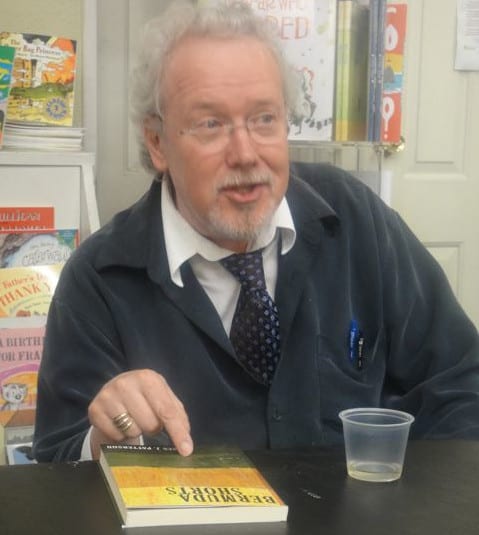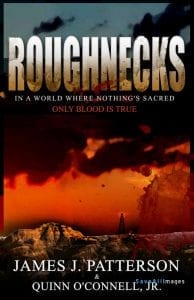Throw Back Thursday: James J. Patterson's "Jesse Lancaster Remembers"
One of Patterson's most intimate and psycological scenes is featured today on ASP's Throwback Thursday. But it is a deviation from the normal tone of his personal essays.

Myra Sklarew once said of reading James J. Patterson that it is "like sitting down with a very intelligent friend and having the kind of conversation you’d always wanted to have."
James J. Patterson is best known for personal essays like "Lovesick Lake" with its famous, labial opening "Chubby Blewett made cedar-strip boats by hand." In Bermuda Shorts the intellectual and informal tone is, much like the works of Bukowski and Joan Didion, the draw of many of its stories. It was also introduction of many like Ms. Sklarew to Patterson's writing. In contrast, Patterson's first novel, Roughnecks, which came after Shorts, about a rough-n-tumble gang of oil drillers on the Williston Basin, necessitated he lose the first-person style on which he had become well-known among lovers of the personal essay.
Roughnecks is as dark as the oil the crew drills, and more tragic and sober than Bermuda Shorts. This is arguably a product of the third-person style he employs to great tonal success though a deviation from his usual lighter fare. Where his personal essays are like a conversation with a friend, his novel is a psycho-analysis of the characters therein and an elucidation of the mindset of the contemporary oilman. As such, dreams are very important throughout the Novel. The section we are listening to today is "Jesse Lancaster Remembers." It is the day dream of a roughneck working the rigs, his regrets and failures and pie-in-the-sky wishes. In it an oil rig suddenly becomes a ship and takes to the seas, but such thoughts and dreams, as personal and conversational as they are, exist in a pristine space hovering above reality and so too, like the real lives of many roughnecks must come to a violent end in the morass of the oil field.
Hear James J. Patterson Read "Jesse Lancaster Remembers"
My father always said that his first memory was of standing on the couch in his parent’s living room, small hands on the back cushion, peering out a picture widow at a neighborhood street in Bend, Oregon. There is a slow-moving line of cars and horse-drawn carriages inching its way down the lane. The line of cars is there every day, and every day he stands there and watches. His street is a long one and at the end of it is the cemetery. He is not allowed to go outside to play. Death is all anyone talks about. Death from a great flu epidemic. Death from a great war just ending. Everyone has lost someone. Most have lost a few. It is 1918…
James J. Patterson reads “Jesse’s Wife” Roughnecks maps a rugged geography of the human condition, as seen through the eyes of the hard-bitten Zachary Harper. With both wit and style, Patterson […]
James J. Patterson reads “The Nearest Thing to Perfection” “One of the welcome treats from the emergence of James J. Patterson’s fiction is his penchant for setting his stories in […]
- « Previous
- 1
- 2
- 3
- 4
- Next »

